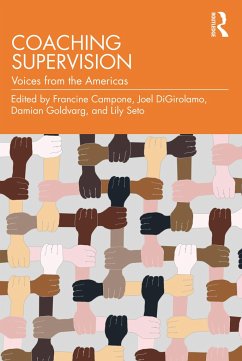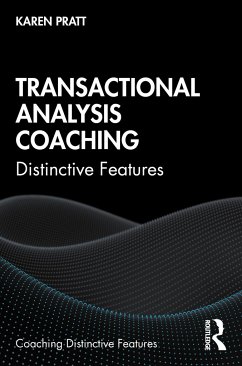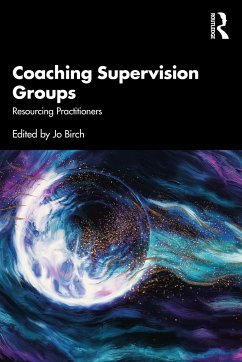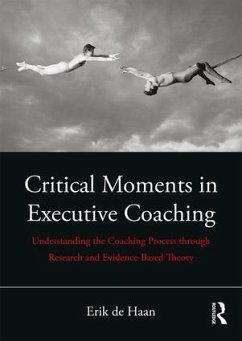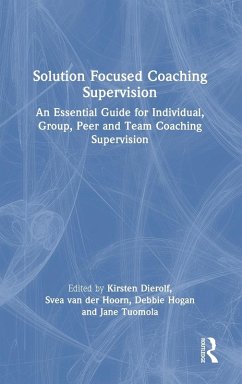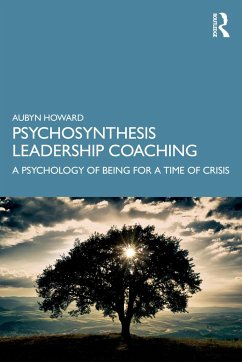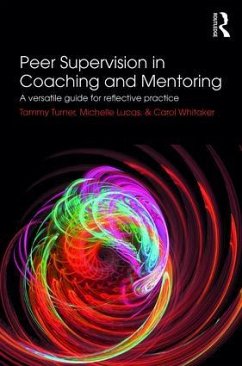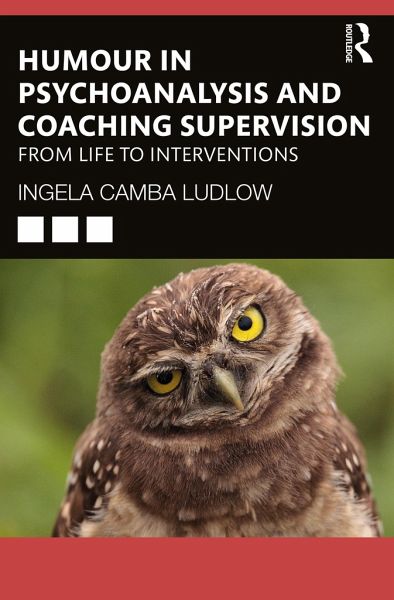
Humour in Psychoanalysis and Coaching Supervision
From Life to Interventions
Versandkostenfrei!
Versandfertig in 6-10 Tagen
32,99 €
inkl. MwSt.
Weitere Ausgaben:

PAYBACK Punkte
16 °P sammeln!
Drawing from psychoanalytic principles, Ingela Camba Ludlow uniquely explores and endorses humour as a serious and essential practical tool in coaching, coaching supervision and psychotherapy, showing how, when successfully integrated, it can help clients navigate the most difficult professional and personal challenges.Often misunderstood and not accepted in the academic arena, chapters in Part 1 begin by looking at the history and evolution of humour from the Ancient Greeks to the modern age, distinguishing different types of humour from each other, such as wit, sarcasm and pantomime. Freud b...
Drawing from psychoanalytic principles, Ingela Camba Ludlow uniquely explores and endorses humour as a serious and essential practical tool in coaching, coaching supervision and psychotherapy, showing how, when successfully integrated, it can help clients navigate the most difficult professional and personal challenges.
Often misunderstood and not accepted in the academic arena, chapters in Part 1 begin by looking at the history and evolution of humour from the Ancient Greeks to the modern age, distinguishing different types of humour from each other, such as wit, sarcasm and pantomime. Freud believed humour to be the highest mechanism of the human psyche and the book continues to examine his relationship and use of humour in psychotherapy, looking at his personal correspondence and patient testimonials as well as how his contemporaries, such as Bion, applied humour in their practice. Moving from theory to practice, chapters in Part 2 show practitioners through case studies, exercises and examples how they can use humour in sessions with clients. Specifically addressing how to use humour ethically, how to remain neutral as the coach and how to use humour to address anxiety, express anger and offer alternative rationalisations, this book provides coaches the practical tools to expand their coaching practice.
This interdisciplinary book will be essential reading for coaches, psychotherapists and counsellors looking to broaden their coaching supervision skill set, as well as those who are interested in how humour can promote personal and professional development through a psychoanalytic lens.
Often misunderstood and not accepted in the academic arena, chapters in Part 1 begin by looking at the history and evolution of humour from the Ancient Greeks to the modern age, distinguishing different types of humour from each other, such as wit, sarcasm and pantomime. Freud believed humour to be the highest mechanism of the human psyche and the book continues to examine his relationship and use of humour in psychotherapy, looking at his personal correspondence and patient testimonials as well as how his contemporaries, such as Bion, applied humour in their practice. Moving from theory to practice, chapters in Part 2 show practitioners through case studies, exercises and examples how they can use humour in sessions with clients. Specifically addressing how to use humour ethically, how to remain neutral as the coach and how to use humour to address anxiety, express anger and offer alternative rationalisations, this book provides coaches the practical tools to expand their coaching practice.
This interdisciplinary book will be essential reading for coaches, psychotherapists and counsellors looking to broaden their coaching supervision skill set, as well as those who are interested in how humour can promote personal and professional development through a psychoanalytic lens.





